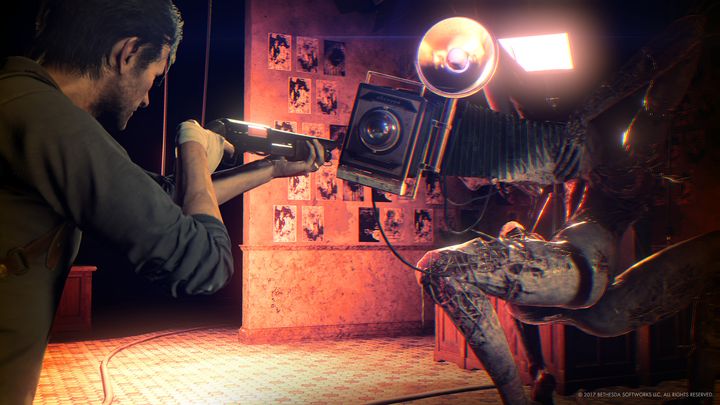Over the years, it has become commonplace for video game aficionados to sell secondhand copies of games online, and places like GameStop also offer a reseller market for video games, while the selling of used video games is also a common practice on major online outlets such as Amazon as well.
But one user was met with a nasty surprise when attempting to sell his copy of The Evil Within 2, as reported on Polygon. This is because said user received a letter from a legal firm representing Bethesda, saying in no amicable terms that he would be sued unless he complied with their terms.
“Unless you remove all Bethesda products from your storefront, stop selling any and all Bethesda products immediately and identify all sources of Bethesda products you are selling, we intend to file a lawsuit against you”, the letter said.
So, what was this user’s crime? Apparently, he was trying to sell the game as “new” – this is because according to him he never unwrapped his copy of good horror game The Evil Within 2, preferring to put it up for sale, and opting to invest in upgrading a gaming PC instead as he told gaming outlet Polygon.
This is what drew the attention of Bethesda’s legal firm, as selling the game as new would not only constitute false advertising according to them, while it also pointed out this sale was not covered by the US’ First Sale Doctrine as the game would lack the warranty you would get if purchased through an authorized retailer.
But given that plenty of video game fans sell their used games online (and Amazon still lists quite a few seconhand copies of The Evil Within 2 which are being offered as “new”), Bethesda’s actions in this case has caused something of a controversy, leading to much negative user reaction online.
It’s also likely that the explanations given by Bethesda’s vice president Pete Hines have not done much to improve the Maryland-based company’s image in this case either.
Speaking to Eurogamer at QuakeCon, Hines defended Bethesda’s actions via its legal firm Vorys, saying “listing the product as if it was new” was wrong on the part of the user, who should have tried to “sell it as a previously owned product”.
“You could have opened it up, played it for five hours, taken whatever inserts or stuff was in there, put it back in shrink wrap and said, ‘Hey this is new.’ It’s not new – you owned it, you bought it, so just list it as a used title. That’s it, that’s the end of the argument”, Hines said.
Bethesda might have a point here, but the man shows a lack of trust in the gaming public and a certain disdain for the people who buy their games that some might find annoying, and could backfire in the future.
After all, it is common practice for users to sell still sealed games as “new” online. And the many sales listings of such games available online suggests Bethesda’s actions might not be working as a deterrent either, meaning it’s dubious the PR hit the video game company could suffer as a result of this will be worth it.
In their defence, however, Bethesda’s Hines did say his company is “not trying to stop anybody selling a used game, we would never try and stop anybody from selling a used game”, if the party does not brand it as “new” – perhaps a willingness on Bethesda’s part to compromise.
Either way, it’s clear the controversy could rage on for some time, so here’s hoping that things work out for the best, and both gamers who want to sell secondhand and the big video game publishers end up on good terms in the end.

